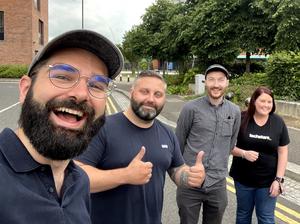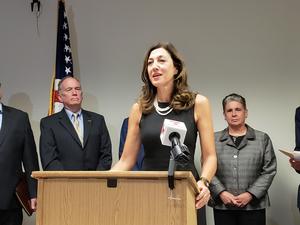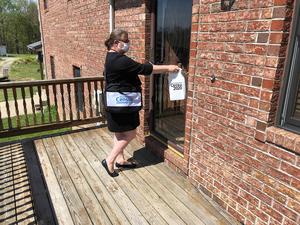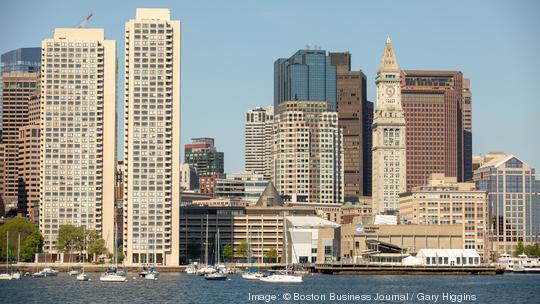
When Ciaran Gillen arrived in Boston last year to join Techstars, he didn’t have a visa stamp on his passport. The Ireland native took advantage of a visa waiver program that allows individuals of certain nationalities to come to the U.S. for training purposes — such as participating in a startup accelerator — for a limited amount of time.
But now that Gillen’s heavy machinery business raised $4.5 million in seed funding from U.S. investors, he’s eyeing the American market while also looking for ways to get approval from federal immigration officials to stay in the country long-term.
Startup leaders across the country, including in Massachusetts, are pushing for an option that would cover entrepreneurs like Gillen: a startup visa. Unlike the U.K. and Canada, the U.S. doesn't offer a startup visa under its immigration laws. People like 38-year-old Gillen would be the beneficiaries of the Let Immigrants Kickstart Employment Act, or LIKE Act, a new bill introduced this past July by U.S. Congresswoman Zoe Lofgren (D-CA), which creates a new temporary visa for immigrants launching companies in the U.S.
“This is one that specifically targets people like me, and business owners and startup entrepreneurs, who want to come in and make a difference, rather than trying to fit us in the different visa class,” Gillen said of the bill.
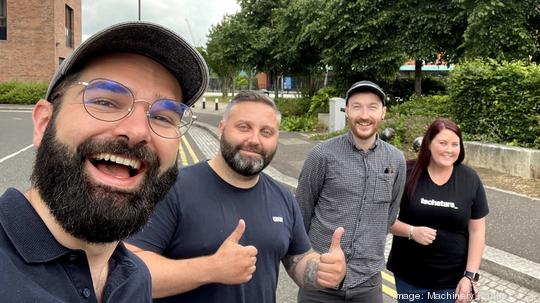
The bill has drawn support from the National Venture Capital Association and its local chapter, the New England Venture Capital Association, or NEVCA, as well as local venture capitalists.
“In 2020, a quarter of the Fortune 500 was founded by immigrants,” said Ari Fine Glantz, director at NEVCA, in a statement. “Entrepreneurship is perhaps one of the most patriotic acts imaginable: it creates jobs… and generates tax revenue. We should be encouraging as much of it as possible.”
In Massachusetts, there were over 77,000 immigrant entrepreneurs in 2019, bringing in a total business income of $2.3 billion, according to data by research organization New American Economy. The Immigrant Learning Center of Malden estimated that about one-quarter of biotech companies in New England have at least one foreign-born founder.
The bill
Lawmakers and entrepreneurs have pushed for a startup visa on and off over the past decade with one of the first attempts being a 2010 bill filed by Massachusetts Sen. John Kerry. Lofgren's proposal differs as it includes provisions related to critical employees, not only startup founders.
The bill would create a W-1 nonimmigrant visa for eligible entrepreneurs for three years. To qualify, entrepreneurs would need to possess at least 10% in ownership interest of the startup, play a central role in the management or operations and be qualified to grow the business. The entrepreneur's startup would also have to raise at least $250,000 in private money from qualified investors or $100,000 in public money, such as government awards or grants, in the 18 months before the visa application is filed.
The visa could be extended for an additional three years provided certain conditions are met, including reaching $500,000 in additional qualifying investments; creating at least five qualified jobs; and generating at least $500,000 in annual revenue. From there, the bill includes an additional two one-year extensions, pending other requirement related to job growth, capital or revenue.
The bill also includes a provision that creates a cap-exempt path to permanent residency — commonly known as "green card" status — for immigrant entrepreneurs and their spouses and their kids. To qualify, the entrepreneur and startup meet certain criteria; for example, the startup must have created at least 10 qualified jobs.
Craig Montuori, co-founder and executive director at the New York City-based nonprofit Global Entrepreneur In Residence (EIR) Coalition, lobbied for a startup visa on behalf of the early-stage community from 2011 to 2014.
“This is a bill that costs the government very, very little,” he said. “This is a bill that will make the government a lot of money over 10 years.”
Jeff Bussgang, general partner and co-founder at Boston-based Flybridge Capital Partners, said in a recent interview that the funding thresholds established by the LIKE Act are “very doable and appropriately low.”

Bussgang pointed out that the uncertainty created by the fact that certain international students have only a one-year window to stay in the U.S. after graduation damages their chances to get startup funding. For him, the bill itself is a win-win with no downside.
“It doesn't take jobs away from anyone. It creates jobs,” he said. “It grows the pie. It doesn't argue over slicing the pie.”
Seed stage venture capital firm Flybridge has invested in more than 150 companies over its 20-year history. Among those, Bussgang estimates that one-third had one immigrant co-founder and two-thirds had one immigrant among their first 10 employees.
Without a startup visa option, Massachusetts has tried to find alternatives to help those workers remain in the state. In 2014, the Patrick administration launched the Global Entrepreneur in Residence program, or GEIR, to help international students launch companies. UMass Boston's Venture Development Center, or VDC, runs the program.
A ‘Band-Aid’ solution
In many senses, visas are like clothes: candidates need to find an option that fits them and that is also appropriate for the occasion. Until now, startup founders who were not born in the U.S. and came to Massachusetts had to use visas that were not specifically designed for their situation but provided a legal way to stay in the country and grow their ventures.
Through the GEIR program, for example, entrepreneurs work part-time at the University of Massachusetts, which sponsors them for a cap-exempt H-1B visa.
As a nonprofit university, UMass is not subject to the annual numerical limit (or cap) of 65,000 new H-1B visas granted each fiscal year, which applies to people without a master’s or higher degree from a U.S. institution.
That means that GEIR applicants can obtain an H-1B visa at any time of the year. If approved, they can legally stay in the country until their venture is established enough to meet requirements for other visas or permanent residency.
To date, GEIR has supported more than 70 entrepreneurs, raising almost $1 billion in funding. And 60% of the ventures are still active, said Aijan Isakova, current program director at UMass Boston's VDC.
Notable companies that in their early days participated in the program include PillPack, the drug delivery platform acquired by Amazon (Nasdaq: AMZN) in 2018, and Flywire Corp. (Nasdaq: FLYW), which went public earlier this year.
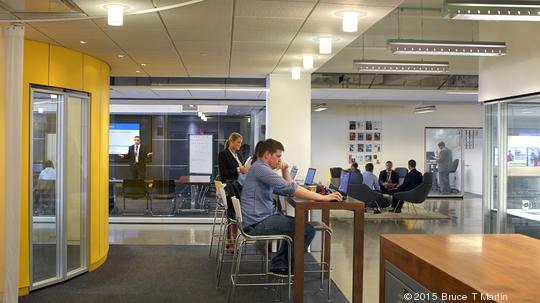
Isakova thinks of the program as “a bridge.”
“We do typically about two years at most, to give the founder time to either do a pilot, (or) raise money,” she said. “We're just giving this extra boost time, where the company's too young to do something in terms of immigration for that entrepreneur.”
Still, the program remains what Bussgang, one of the GEIR’s founders, described as “a Band-Aid to a broken system.”
"The current immigration system is so bad, you couldn't design it to be more depressing for economic activity and entrepreneurial innovation," he said. "It is the dumbest system you could possibly design if you intentionally wanted to prevent the world's best and brightest to come to America and start companies here to create tremendous value and millions of jobs."
